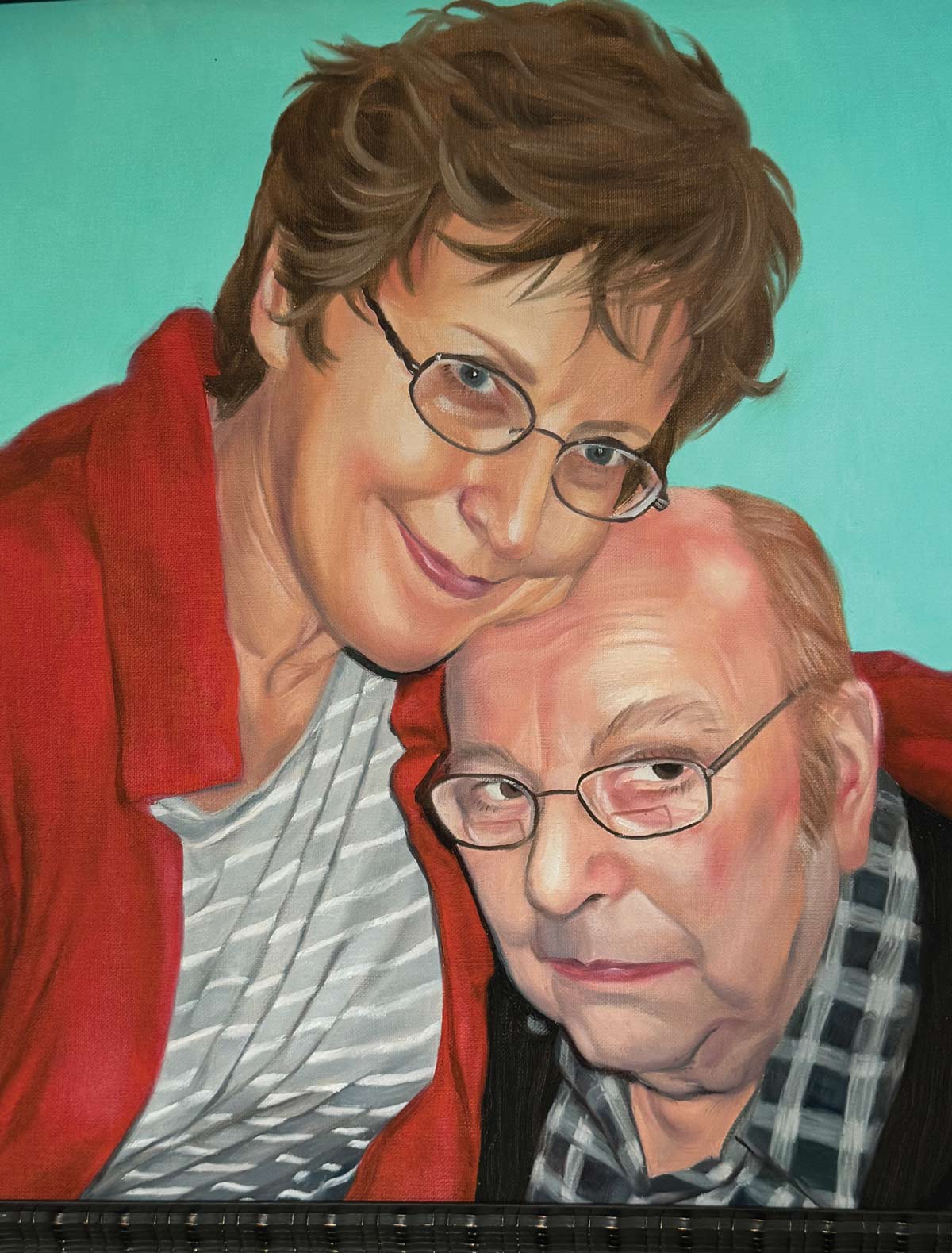The Job No One Applies For

There were no robbers … but we were in big trouble. I soon learned that a disease, a dreadful dementia, was taking over our lives, attacking Ben’s brain and body and turning him into someone I barely recognized.
Many of us may be facing similar experiences—a spouse, parent, sibling, or friend showing scary signs of a changing brain. Millions of people get a dementia diagnosis annually. Lewy body dementia, my husband’s disease, is far less understood. It can be extremely tough to get diagnosed—Robin Williams never did, though they tried for 18 months. Then, when you do know, you are confronted with terrible questions: How do I cope? Can I keep my loved one home? What products and equipment do I need for the future? How are we going to pay for care?
Dementia caregiving is the hardest job nobody ever applies for—and there’s no pre-job training. It’s stressful, exasperating, exhausting. I cried more during caregiving than at any other time of my life. But I learned to cope. What do you do when your husband sees robbers who aren’t there, feels mice nibbling his toes in bed or snakes scratching at his skin, or wanders out of the house? You let the police search, you put out mouse traps, you get the doctor to check his hand and say it’s not blackening, so it’s okay. How do you cope when he says you aren’t his wife, that you’re seeing someone else and he wants you gone? You get right in his line of sight and say “Hi!” and hope he recognizes you this time. You reach out, you find support and guidance, and you survive.
I did learn positive lessons from this stressful experience, things that seem trite but are still true, for more than just caregivers. I learned that “help” is the hardest word to say, but you must reach out. You cannot make it alone. Family, friends, social agencies, everything and everyone. Ask. Independence may seem brave, but it’s very lonely. You cannot fill a cup from an empty vessel. You need time off to replenish and refresh or you burn out. “Me Time,” is not selfish, it’s necessary for your sanity.
I also learned that you can be clever and creative and try to head off challenges, but sometimes cleverness will backfire and bite you in the butt—such as the time Ben had a delusion about needing to deposit a “check” that was really an old bill. For weeks, he insisted we needed to take it to the bank. Luckily, the clerk knew our situation and said she could handwrite a “receipt” to satisfy him. But when Ben tried to traverse the parking lot to check up on me, he fell and cracked his head open. Luckily, no permanent damage, but we had a scary ER trip.
Finally, there’s a saying: “Hot water softens a carrot but hardens an egg.” I chose to be an egg, hardened but not hard. Now, to help others, I’ve written a book for those who care for people with LBD or Parkinson’s disease dementia. It has been a heartfelt project for me, and I hope it will help people desperate to know what I learned.
Kathy Teyler Jarrett ’73 is the author of You Are Not Alone: Dealing with Lewy Body Dementia, published by Luminare Press.